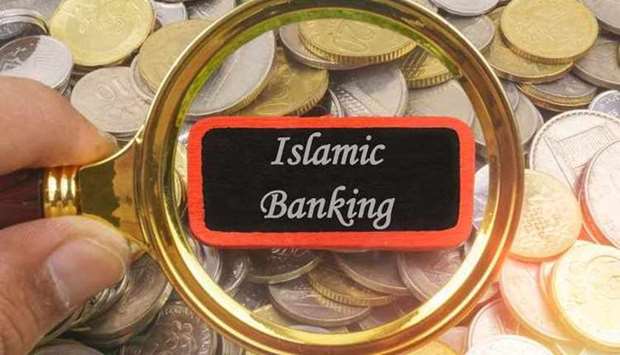Qatar's Islamic banking assets stood at $121.7bn in 2020, Alpen Capital said and noted Qatar is among the 'Global Top 10 Countries by Islamic Assets’.
GCC countries collectively account for 45.2% of the total Islamic banking assets globally, Alpen Capital said in its latest ‘Islamic Finance and Wealth Management Report’. Shariah-compliant assets represent a significant portion of total banking assets of the GCC.
“In Qatar, the 8.4% y-o-y growth in assets during 2020 was buoyed by strong regulatory support and focus on technological developments that allowed easy and safe execution of services amid the pandemic,” Alpen Capital said.
There were 526 Islamic banks across the globe as of 2019. Besides Qatar, Malaysia, Saudi Arabia, the UAE, and Kuwait are the largest markets in terms of the Islamic bank assets.
Their aggregate assets represent 79% of the combined assets of the 100 largest Islamic banks.
In recent years, many governments strengthened the Islamic finance sector through targeted initiatives, Alpen Capital noted.
Governments across the globe have taken particularly bold measures to support the Islamic FinTech ecosystem, encourage digitalisation of banks, boost tokenisation of sukuks, and bolster growth in markets that are rising in prominence such as Islamic social finance and ESG or impact investments.
The regulatory framework around Islamic finance has also been modernised with new and amended laws to bolster the industry.
Recently, Kuwait’s parliament approved a proposal to establish a Shariah board that would regulate the banking sector and ensure banks’ adherence to Islamic law, while Qatar’s Central Bank announced plans to centralise its Islamic finance sector, the report said.
Qatar’s Islamic finance assets to GDP stood at 40% in 2019; Alpen Capital said.
During the five-year period under review between 2014 and 2019, Qatar registered a compound annual growth rate (CAGR) of 10.7% in Islamic finance assets, the fourth highest in the world.
Region-wise, the GCC held the highest share in Islamic finance assets with 43.6% or $1,253bn, while other Mena countries and South East Asia (SE Asia) accounted for 26.3% ($755bn) and 23.8% ($685bn), respectively, Alpen Capital said.
Global Islamic financial assets have witnessed robust growth, partly due to elevated levels of sukuk issuance recorded in traditional markets within the GCC and SE Asia.
Islamic funds recorded high growth levels, mainly driven by new launches of Islamic exchange traded funds (ETFs) in several countries and ESG-related investment assets made available through digital media.
Global takaful assets considerably recovered from losses witnessed over the past two years, with takaful assets in GCC recording higher growth due to improved profitability, Alpen Capital noted.
GCC countries collectively account for 45.2% of the total Islamic banking assets globally, Alpen Capital said in its latest ‘Islamic Finance and Wealth Management Report’. Shariah-compliant assets represent a significant portion of total banking assets of the GCC.
“In Qatar, the 8.4% y-o-y growth in assets during 2020 was buoyed by strong regulatory support and focus on technological developments that allowed easy and safe execution of services amid the pandemic,” Alpen Capital said.
There were 526 Islamic banks across the globe as of 2019. Besides Qatar, Malaysia, Saudi Arabia, the UAE, and Kuwait are the largest markets in terms of the Islamic bank assets.
Their aggregate assets represent 79% of the combined assets of the 100 largest Islamic banks.
In recent years, many governments strengthened the Islamic finance sector through targeted initiatives, Alpen Capital noted.
Governments across the globe have taken particularly bold measures to support the Islamic FinTech ecosystem, encourage digitalisation of banks, boost tokenisation of sukuks, and bolster growth in markets that are rising in prominence such as Islamic social finance and ESG or impact investments.
The regulatory framework around Islamic finance has also been modernised with new and amended laws to bolster the industry.
Recently, Kuwait’s parliament approved a proposal to establish a Shariah board that would regulate the banking sector and ensure banks’ adherence to Islamic law, while Qatar’s Central Bank announced plans to centralise its Islamic finance sector, the report said.
Qatar’s Islamic finance assets to GDP stood at 40% in 2019; Alpen Capital said.
During the five-year period under review between 2014 and 2019, Qatar registered a compound annual growth rate (CAGR) of 10.7% in Islamic finance assets, the fourth highest in the world.
Region-wise, the GCC held the highest share in Islamic finance assets with 43.6% or $1,253bn, while other Mena countries and South East Asia (SE Asia) accounted for 26.3% ($755bn) and 23.8% ($685bn), respectively, Alpen Capital said.
Global Islamic financial assets have witnessed robust growth, partly due to elevated levels of sukuk issuance recorded in traditional markets within the GCC and SE Asia.
Islamic funds recorded high growth levels, mainly driven by new launches of Islamic exchange traded funds (ETFs) in several countries and ESG-related investment assets made available through digital media.
Global takaful assets considerably recovered from losses witnessed over the past two years, with takaful assets in GCC recording higher growth due to improved profitability, Alpen Capital noted.


